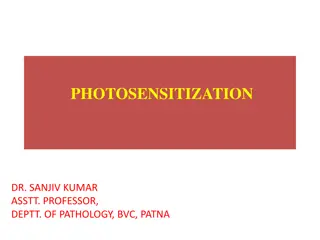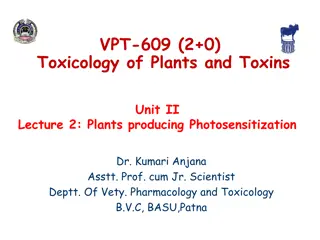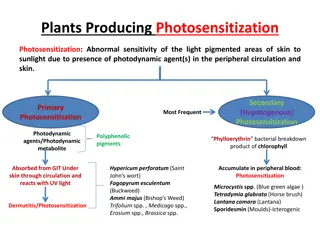Understanding Photosensitization in Animals - Causes and Types
Photosensitization in animals is the activation of photodynamic chemicals on the skin by UV or visible light, leading to cellular damage and inflammation. Factors necessary for photosensitization include oxygen, sunlight, specific chemicals, and skin lacking pigments. Types of photosensitization inc
1 views • 8 slides
Understanding Photosensitization in Plants: Toxicology and Effects
Photosensitization is a syndrome where certain animals are abnormally sensitive to UV and visible light due to the presence of photodynamic agents in their bodies. This condition can be caused by ingesting toxic plants, improper metabolism, or liver damage. Various animal species can be affected by
1 views • 25 slides
Understanding Photosensitization in Plants: Causes and Toxicity
Photosensitization in plants can lead to abnormal skin sensitivity to sunlight, caused by the presence of photodynamic agents in the skin and peripheral circulation. Primary and secondary photosensitization are common, with various plants and toxins contributing to liver damage and biliary occlusion
0 views • 12 slides


